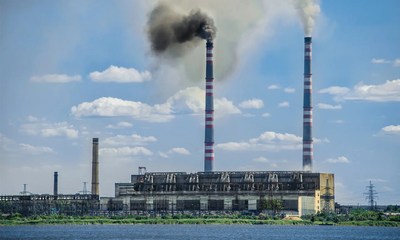Chronic water waste results in alarming increase in carbon emissions, research shows
Press Releases
Mar 24, 2022
A new paper reveals the hidden cost and impact of water waste in facilities
NEW YORK, March 24, 2022 /PRNewswire/ — The water systems within the world’s building and facilities are a major source of carbon and other greenhouse gas emissions that contribute to the global climate crisis, according to a new white paper released by WINT Water Intelligence.
While the availability of clean water has been recognized as an urgent worldwide concern, carbon emissions associated with the production, treatment, and distribution of clean water have often been overlooked. “The Carbon Impact of Water” details the immediate and long-term consequences of our current water infrastructure.
The paper also highlights the amplifying effect of waste and chronic inefficiency. Approximately 25% of all water in the built environment is ultimately wasted, driving up water-related energy use and associated greenhouse emissions.
“The Carbon Impact of Water” also offers expert guidance on best practices to reduce waste and emissions.
“The environmental impact of water misuse and waste is a critical challenge,” the report concludes. “Where in the past water was viewed as a scarce resource in some locations and a plentiful asset in others, it can no longer be taken for granted. Inefficient use of this resource creates shortages and increases greenhouse emissions, sometimes more than notorious emitters such as cars or transatlantic flights.”
While greenhouse emissions vary based on the source and distribution method, the research finds that every cubic meter of water consumed generates 10.5 kg of carbon emissions, or 85 pounds for every 1,000 gallons. For some local U.S. governments, where such information is readily available, water and wastewater can account for 30-40% or more of public energy consumption. Moreover, potable water ends up in sewage treatment processes that are not only energy-intensive but also release powerful greenhouse gases such as nitrous oxide and methane, which are many times more potent than carbon dioxide.
Unfortunately, inefficiencies are rampant in buildings. Approximately 25% of the water in the built environment is ultimately wasted through leaks, outdated technology, malfunctions, and human error. As a simple example, a leaking toilet continuously flows at 100-150 gallons per hour, wasting more than 1 million gallons a year and accounting for some 4.5 tons of greenhouse emissions — identical to the total annual emissions from a passenger car. In facilities with multiple restrooms, such as office buildings, sports stadiums, and shopping malls, some 2-3% of toilets typically leak at any point in time, creating significant carbon and water footprints.
Inefficient use of water is a significant source of carbon and other greenhouse emissions, but a few key actions, such as proper maintenance and installing advanced water intelligence solutions are highly effective ways of reducing waste, emissions, and overall environmental impact.
“It is our generation’s responsibility to efficiently use the water we’ve been given,” the paper concludes, “and to identify and curtail the unnecessary, expensive, and environmentally irresponsible waste of this precious resource.”
To read “The Carbon Impact of Water,” visit https://wint.ai/the-carbon-footprint-of-water.
About WINT
WINT is passionate about helping the world conserve one of its most precious resources and dedicated to helping businesses prevent the hazards, costs, waste and environmental impact associated with water leaks and waste. Utilizing the power of artificial intelligence and IoT technology, WINT provides a solution for commercial facilities, construction sites and industrial manufacturers looking to cut water waste, reduce carbon emissions and eliminate the impact of water-leak disasters. For more information, please visit www.wint.ai.
MEDIA CONTACT:
Heather Ripley
Ripley PR
(865) 977-1973
[email protected]
![]() View original content to download multimedia:https://www.prnewswire.com/news-releases/chronic-water-waste-results-in-alarming-increase-in-carbon-emissions-research-shows-301509645.html
View original content to download multimedia:https://www.prnewswire.com/news-releases/chronic-water-waste-results-in-alarming-increase-in-carbon-emissions-research-shows-301509645.html
SOURCE WINT



